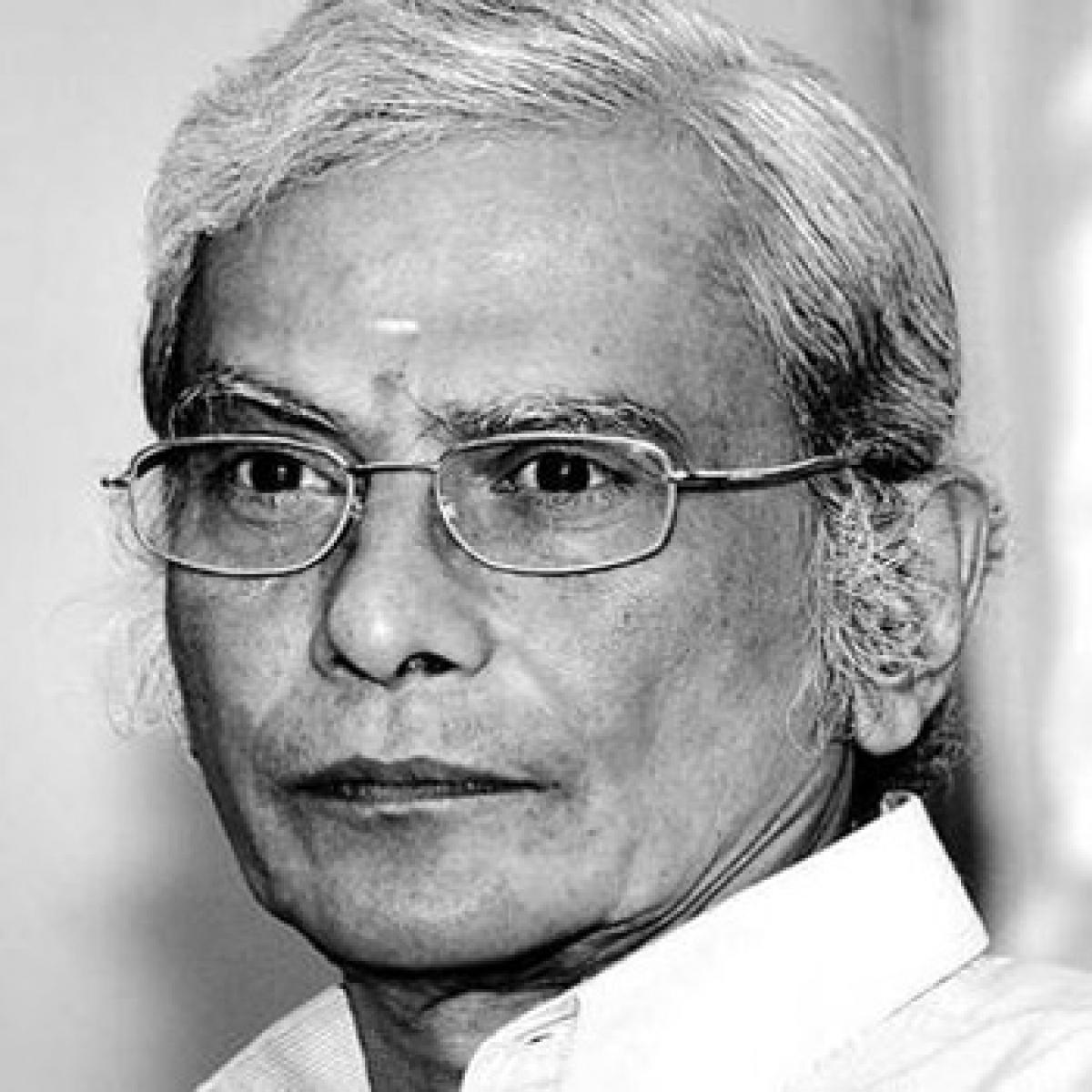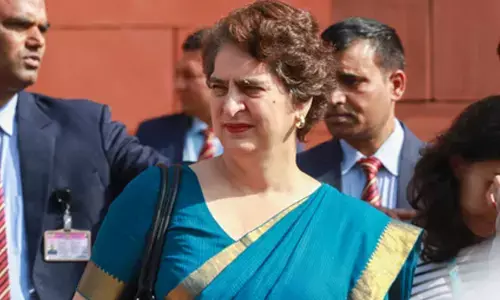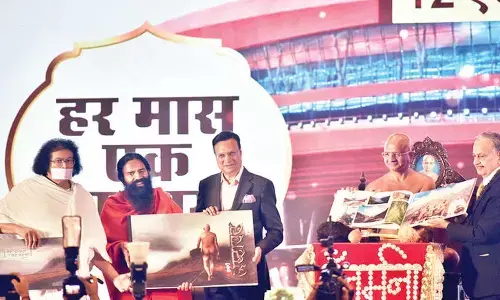Government official or a servant of the public?

In the event, the meeting with the CBI officials turned out to be a routine work. But for a few instances, my simple analysis and to-the-point responses appeared to surprise the officials. My attention had been drawn, for instance, to a particular matter which had passed through my hands.
In the event, the meeting with the CBI officials turned out to be a routine work. But for a few instances, my simple analysis and to-the-point responses appeared to surprise the officials. My attention had been drawn, for instance, to a particular matter which had passed through my hands.
They asked whether I recalled any pressure having been put upon me in that connection. “Of course”! I exclaimed, “there’s always pressure applied in all matters.” Which was quite true really. It was quite common, in fact, for phone calls to be received from Ministers other political leaders even before a file had reached one’s desk.
At another point in the conversation the question was whether the issuance of a government order was not a favour to particular party. Once again I seemed to a surprise the two officers when I said. “Naturally!”. Most government orders usually benefit some and others lose out. I explained to them that nearly all issues could easily be settled at the level of the local police station or the taluk office, given the authority vested in the officials at those levels and the existence of elaborate instructions relating to disposal of matters.
Government intervention is normally necessitated only when competing interests bring higher echelons into the picture, each party decision a dispensation in its favour. Invariably, whichever way the matter goes, one side feels favoured while the other nurses a grievance of perceived injustice.
Thus having duly imparted “gyan” to the young officers I left, satisfied that matters had been clarified to their satisfaction during the interaction. In the process I had however, come across several documents and depositions earlier given by other officials. I could not help reflecting that some of my colleagues had adopted a regrettable and somewhat indefensible attitude.
The stand some had taken was that something had been done as the Minister or the Chief Minister had wanted it done that way. And they had taken such a position not only when their actions were contrary to the advice tendered but also when they were patently irregular or contrary to the rules or the law. The media, and influenced by their point of view, the public, were actually sympathizing with the so called political “interference” leading to officials being pressurized into issuing irregular orders.
I felt quite unhappy with the inability of the civil servants in question to stand their ground with their masters.I recalled that, as Chief Secretary I had come across instance of colleagues giving in easily to pressure brought to bear upon them by political leaders and businessman and such – offering little or, at best, token resistance.
As a measure of reminding them of their duty as principled public servants I had caused a circular to be issued on how they should deal with orders of their Ministers or the Chief Minister when such orders were not in the public interest. While exhorting them to stand their ground in such situations I had drawn their attention to the provisions of the Secretariat Business Rules (BRs) which specifically empowered Secretaries and other senior officers with the right to ask for reconsideration of such decisions.
In practice such reconsideration could be asked for because the official concerned felt that the advice tendered by him, although in order in the context of the facts of a given case, had been overruled and orders passed that may have been arbitrary, mala fide or discriminatory, had they been implemented.
Another cause for insisting upon a second look could be that the orders in question, if given effect to, would result in deviation from the policy laid down by the government. The BRs provided, in addition, the remedy of an appeal to the Chief Minister if the Minister refused to change his orders even after reconsideration. Such an appeal would have had to the be routed through the Chief Secretary as also that Minister thus providing the latter with another opportunity to withdraw the earlier orders.
As a Secretary to the state government I had, on more than one occasion, taken recourse to those provisions of the BRs. I recalled with satisfaction that a Minister had, preferred to resile from his stand, to having to explain to the Chief Minister the rationale orders behind his stand.
I also recalled with pride that while my circular only reiterated the position to be adopted in such cases by senior officers, there were many who had the courage to assert themselves in such situations in those days. My instructions merely served to strengthen their hand further. Such a face off arose many a time when the Ministers in question succumbed to lobbying by interest groups and also, it must be conceded, on account of the officer in question being the quarrelsome type.
Reverting from my reverie to the situation on hand, I felt that it was unfortunate that some officers had, during the course of the investigation, stated that they had been “compelled” to issue palpably irregular orders as they were complying with the orders of the Ministers. They had simply thrown their hands up in helplessness claiming to be hapless victims of political interference. Whom were they deceiving, I asked myself? Only themselves ultimately. Here were professionally trained civil servants who had been schooled in the art of handling their political masters from the word go, even as greenhorns while under probation at the Academy.
These officers had to have been either totally ignorant (unlikely in light of their training and the standing instructions governing secretarial procedure which they ought to have read and to which I had recently drawn their attention) or were vulnerable and consequently weak in character. There was, of course, the highly unpleasant alternative, one to which I was reluctant to subscribe, that they were lacking in integrity.
More recently, I found a news item alleging the loss to the exchequer of the Telangana state of over a hundred crore rupees on account of an irregular renewal by the state government of a land lease. I had known both the Secretary and the Minister at whom fingers were pointed in the media reports. They were, in fact, good friends of mine. I had no doubt that they must have acted in good faith while arriving at the decision in question. The minister, the report went on to state, had recorded on the file that the party concerned had met him and explained why issuance of the order in question would be the right thing to do.
Perhaps he felt that he was doing no wrong. After all, he had the courage to state in writing why he was doing what he did. But then, I wondered, what about the Secretary? Should he not have pointed out to the minister, informally at first and, if necessary on record thereafter the implications of the course of action proposed by him (the Minister). The Minister would probably have changed his mind upon realizing the adverse impact on the public interest. If those overtures had failed “the final solution”, as provided in the BRs, could have been resorted to.
I shook my head in disappointment at the unsatisfactory manner in which the matter had been dealt with. I shuddered at the prospect of such attitude on the part of the uniformed forces of the country such as the police or the military. What if they were also to take shelter under the politicians dictates and flout the law?
I know of no constitution in the world which specifically provides for protection to the civil services in order to encourage them to remain free, fair and impartial in the discharge of their functions, no matter what pressures they are subjected to. And all that guarantee notwithstanding, bureaucrats spend their years in service hankering after one prize or other.
Be it a district posting, the choice of the department to serve in the government of India, the desk in the department, the posting in an international organization or the continuation therein until one qualifies for a pension, the temptation to befriend those in whose power it is to dispense such goodies and, in the process, wink at the occasional transgression of the Lakshmana Rekha has proved to be a great failing.
I strongly feel all of us need to look at those languishing in poverty, denied access to basic human needs and the right to lead a dignified life and remind ourselves – “there, but for the grace of God, go I”. In a country in which to be alive at all beyond the age of two, is a boon, enjoyment of the privilege of schooling and higher education, and gainful employment in a rewarding profession are blessings to be counted.
Given that, is it too much to ask that a civil servant remain above self-aggrandisement and work sincerely and fearlessly? And serve the interests of the downtrodden, the backward areas and the priorities remaining neglected by the governance structure? It is also time for civil servants to tell themselves that the willingness to stand up and be counted is an attribute that is not an option but a compulsion.
The Constitution of India at once bestows upon them the right to assert themselves remaining unaffected by wrongful coercion, and the duty to do so on behalf of those whom they exists to serve. I am in incurable optimist. I remain confident that the generation of civil servants to come will inculcate this all important quality.




















